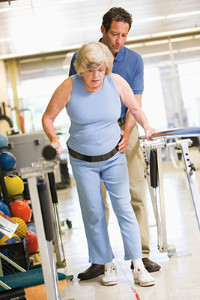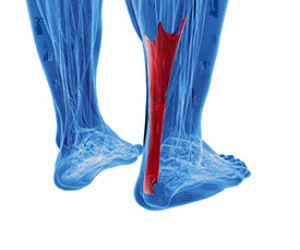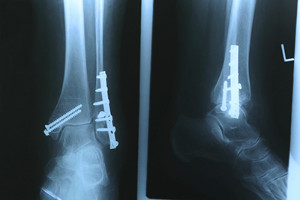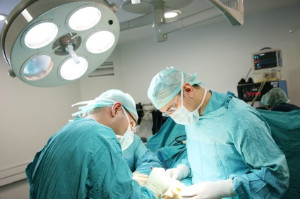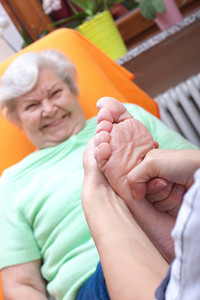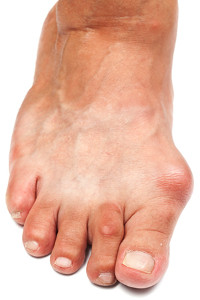 A bunion is a deformity that occurs on the joint at the base of the big toe. Though the exact cause of bunions is somewhat disputed, wearing tight fitting shoes and genetics tend to play a role in the development and exacerbation of them. Common symptoms that are usually associated with bunions include swelling, soreness, pain, and redness around the joint and bump. Bunions can become worse over time, and poorly-supportive footwear, like high heels, have been associated with worsening them. It is recommended to see a podiatrist when you notice a bunion forming even when it does not cause pain. If you have a bunion that is causing you pain, you should see one right away. A podiatrist will generally offer non-surgical options first if the bunion is not severe. These include bunion pads to relieve pressure off the bunion, pain and anti-inflammatory medication, and suggesting roomier shoes. If the pain continues or worsens and all non-surgical options have failed, surgery may be considered.
A bunion is a deformity that occurs on the joint at the base of the big toe. Though the exact cause of bunions is somewhat disputed, wearing tight fitting shoes and genetics tend to play a role in the development and exacerbation of them. Common symptoms that are usually associated with bunions include swelling, soreness, pain, and redness around the joint and bump. Bunions can become worse over time, and poorly-supportive footwear, like high heels, have been associated with worsening them. It is recommended to see a podiatrist when you notice a bunion forming even when it does not cause pain. If you have a bunion that is causing you pain, you should see one right away. A podiatrist will generally offer non-surgical options first if the bunion is not severe. These include bunion pads to relieve pressure off the bunion, pain and anti-inflammatory medication, and suggesting roomier shoes. If the pain continues or worsens and all non-surgical options have failed, surgery may be considered.
If you are suffering from bunions, contact one of our podiatrists of Westside Podiatry Center, LLP. Our doctors can provide the care you need to keep you pain-free and on your feet.
What Is a Bunion?
A bunion is formed of swollen tissue or an enlargement of boney growth, usually located at the base joint of the toe that connects to the foot. The swelling occurs due to the bones in the big toe shifting inward, which impacts the other toes of the foot. This causes the area around the base of the big toe to become inflamed and painful.
Why Do Bunions Form?
Genetics – Susceptibility to bunions are often hereditary
Stress on the feet – Poorly fitted and uncomfortable footwear that places stress on feet, such as heels, can worsen existing bunions
How Are Bunions Diagnosed?
Doctors often perform two tests – blood tests and x-rays – when trying to diagnose bunions, especially in the early stages of development. Blood tests help determine if the foot pain is being caused by something else, such as arthritis, while x-rays provide a clear picture of your bone structure to your doctor.
How Are Bunions Treated?
- Refrain from wearing heels or similar shoes that cause discomfort
- Select wider shoes that can provide more comfort and reduce pain
- Anti-inflammatory and pain management drugs
- Orthotics or foot inserts
- Surgery
If you have any questions, please feel free to contact one of our offices located in Liverpool, Camillus, Skaneateles, Oswego, and Cicero, NY . We offer the newest diagnostic and treatment technologies for all your foot care needs.
